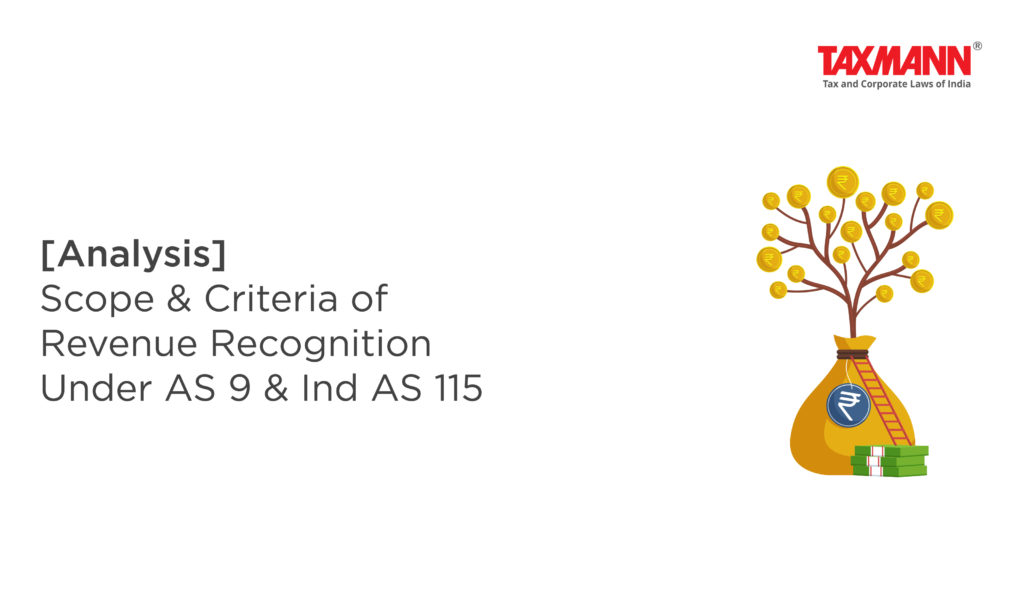[Analysis] Scope & Criteria of Revenue Recognition Under AS 9 & Ind AS 115
- News|Blog|Account & Audit|
- 2 Min Read
- By Taxmann
- |
- Last Updated on 24 May, 2023

Accounting Standard 9, “Revenue Recognition”, defines the term revenue as the gross inflow of cash, receivables or other consideration arising in the course of the ordinary activities of an entity from the sale of goods, the rendering of services and from the use by others of entity resources yielding interest, royalties and dividends.
Ind AS 115 “Revenue from Contracts with Customer” applies to all contracts with customers to provide goods or services that are the output of the entity’s ordinary activities of the business in exchange for consideration, unless specifically excluded from the scope of this Ind AS.
Recognition Criteria as per Ind AS 115
Step 1: Identify the contract with the customer
Step 2: Identify the performance obligation in the contract
Step 3: Determine the transaction price
Step 4: Allocate the transaction price to the performance obligations in the contract
Step 5: Recognize revenue when the entity satisfies its performance obligation
In carrying out the audit of revenue, the following checklist can be helpful for the auditor to obtain reasonable assurance about the reporting of revenue in the financial statements:
I. Has the auditor examined the system and procedure relating to the generation of revenue including the authority to fix prices, offer discounts and other terms of sale
II. Has the auditor checked, whether the accounting procedure, relating to the recognition of revenue is as per AS 9/Ind AS 115
III. Whether the auditor has ensured that the transactions pertaining to a period are recorded in that period and not in a preceding or subsequent period
IV. Whether the actual price charged has been compared with authorised price lists or have been authorised by the appropriate official of the entity
Click Here To Read The Full Story
Disclaimer: The content/information published on the website is only for general information of the user and shall not be construed as legal advice. While the Taxmann has exercised reasonable efforts to ensure the veracity of information/content published, Taxmann shall be under no liability in any manner whatsoever for incorrect information, if any.

Taxmann Publications has a dedicated in-house Research & Editorial Team. This team consists of a team of Chartered Accountants, Company Secretaries, and Lawyers. This team works under the guidance and supervision of editor-in-chief Mr Rakesh Bhargava.
The Research and Editorial Team is responsible for developing reliable and accurate content for the readers. The team follows the six-sigma approach to achieve the benchmark of zero error in its publications and research platforms. The team ensures that the following publication guidelines are thoroughly followed while developing the content:
- The statutory material is obtained only from the authorized and reliable sources
- All the latest developments in the judicial and legislative fields are covered
- Prepare the analytical write-ups on current, controversial, and important issues to help the readers to understand the concept and its implications
- Every content published by Taxmann is complete, accurate and lucid
- All evidence-based statements are supported with proper reference to Section, Circular No., Notification No. or citations
- The golden rules of grammar, style and consistency are thoroughly followed
- Font and size that’s easy to read and remain consistent across all imprint and digital publications are applied



 CA | CS | CMA
CA | CS | CMA
